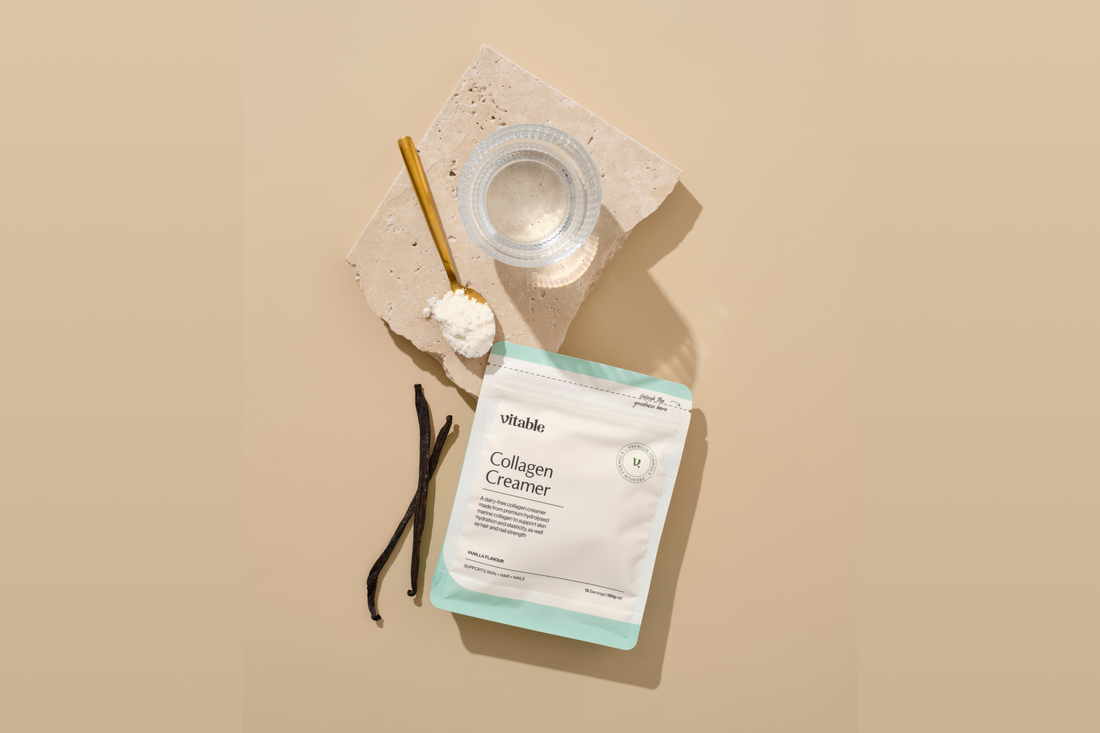Vitamin C aka ascorbic acid is an essential water-soluble nutrient, required in the diet, regularly, as our bodies can not make it.
It has been classified as one of the most important water-soluble antioxidant substances in the body. Ongoing research explores the benefits of Vitamin C, due to its antioxidant activity on chronic diseases.
Antioxidant
- Vitamin C can work both inside and outside the cells, neutralising free radicals, preventing damage and protecting cells (Braun & Cohen 2015, 1102).
- Ascorbic acid is a reducing agent and can reduce and neutralise reactive oxygen species (Lobo et al. 2010).
Immune System
- Vitamin C stimulates the production and function of white blood cells, the cells in the body that protect the body from unwanted substances (Linus Pauling Institute 2020).
- Vitamin C contributes to immune defence by supporting the cellular function of the innate and adaptive immune system (Carr & Maggini, 2017).
Energy Support
- Vitamin C is a cofactor for the molecule required for the transport of fatty acids into mitochondria for the generation of metabolic energy (Carr & Maggini, 2017).
Collagen Formation / Skin Health
- Vitamin C is needed for the synthesis of collagen proteins. It plays a role in the maintenance of normal collagen networks in humans (Boyera et al. 1998).
- Vitamin C is found in high levels in the dermal and epidermal skin layers. Dietary and topical ascorbic acid have beneficial effects on skin cells (Linus Pauling Institute 2020).
Brain Function
- Ascorbate is a vital antioxidant molecule in the brain, it’s involved in neurotransmitter synthesis and is involved in neural maturation and acts and a neuroprotective agent (Harrison & May 2009).
References
- Braun, L., and Cohen,Marc. 2015. Herbs & Natural Supplements An Evidence-based guide Volume 2. 4th ed. Australia: Elsevier.
- Harrison, FE., May, JM. 2009. “Vitamin C function in the brain: vital role of the ascorbate transported SVCT2”. Free Radical Biology and Medicine, 15. 6 (Mar): 719-30. 10.1016/j.freeradbiomed.2008.12.018
- Linus Pauling Institute. 2020. “Micronutrient Information Center- Vitamin C”. https://lpi.oregonstate.edu/mic/vitamins/vitamin-C
- Boyera, N., Galey, I., Bernard, BA. 1998. “Effect of vitamin c and its derivatives on collagen synthesis and cross-linking by normal human fibroblasts.” International Journal of Cosmetic Science”, 20. 3 (Jun): 151-8. 10.1046/j.1467-2494.1998.171747
- Carr, AC., Maggini, S. 2017. “Vitamin C and Immune function.” Nutrients, 3. 9(Nov). 10.3390/nu9111211
- Lobo, V., Patil, A., Chandra, N. 2010. “Free radicals, antioxidants and functional foods: Impact on human health.” Pharmacology Review, 4. 8 (Jul-Dec): 118-126. 10.4103/0973-7847.70902




